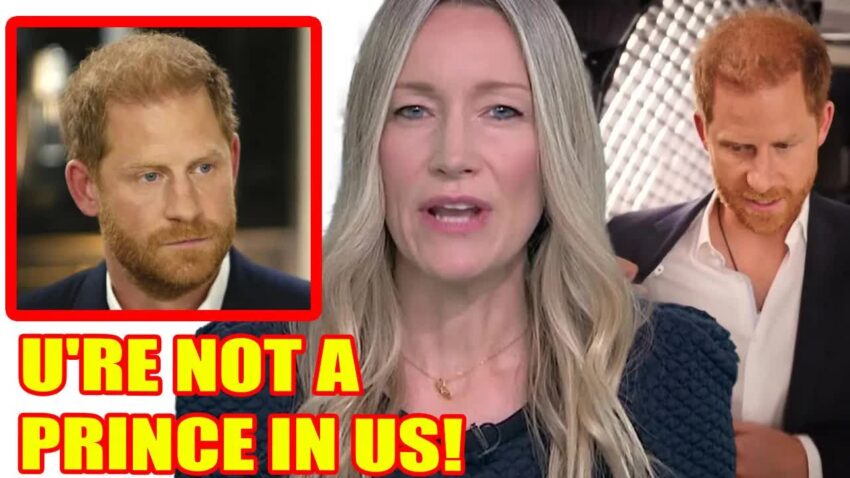In a recent ITV documentary, tensions flared as Prince Harry expressed his frustration with journalist Rebecca Barry for not addressing him by his royal title.
The interview, part of the series “Tabloids on Trial,” saw Harry making serious allegations against the British press, claiming their actions had caused immense distress for both him and Meghan Markle.
However, it was Barry’s refusal to refer to him as “Prince” that reportedly left Harry feeling angry and embarrassed.
Sources close to the Duke of Sussex have revealed that he was particularly upset by this apparent snub.
While Harry has often stated his desire to be seen simply as “Harry,” the situation has sparked a heated debate about respect and titles.
Some argue that moving to America means he should adapt to a different set of social norms—after all, the U.S. doesn’t have royalty.
Critics contend that if Harry wants respect, he should earn it, especially considering past controversies involving his wife, Meghan.
The fallout from this incident has been intense.
Many believe that Harry’s insistence on being called “Prince Harry” while simultaneously distancing himself from royal duties creates a contradiction in his narrative.
It raises the question: can one truly embrace a title while rejecting the responsibilities that come with it?
For some, the moment Harry allowed Meghan to perform a controversial gesture—a so-called false curtsy—was when he lost any claim to royal respect.
The ongoing public discourse surrounding Harry and Meghan’s relationship with the royal family has become increasingly polarized.
On one hand, there is empathy for their struggles with the tabloid press.
Yet, on the other, there’s a growing frustration over what many perceive as hypocrisy.
Critics argue that the couple exploits their royal connections for personal gain while simultaneously distancing themselves from the monarchy when it suits their narrative.
Barry’s choice to omit Harry’s title during the interview has been interpreted by some as a pointed critique of his royal status.
It suggests that, in the realm of public perception, his personal story holds more weight than his lineage.
This incident has also brought Barry under scrutiny, with some accusing her of being overly sympathetic to Harry’s claims, raising questions about journalistic objectivity.
